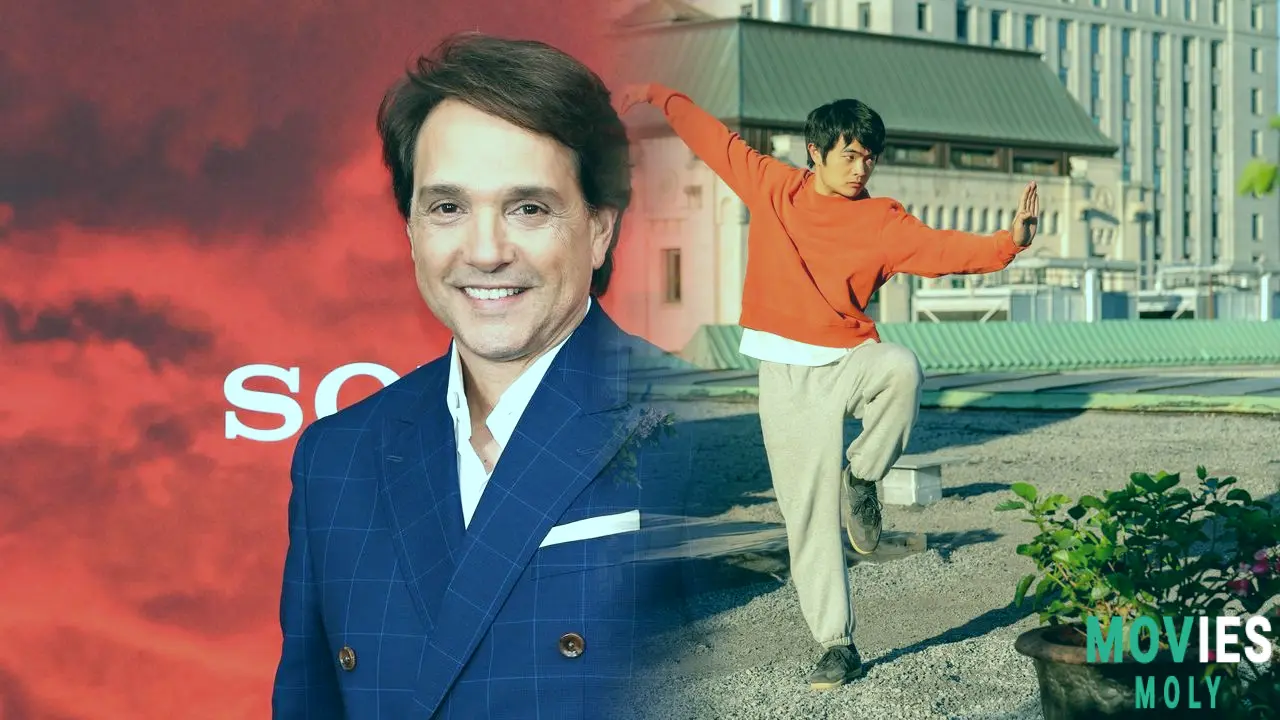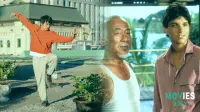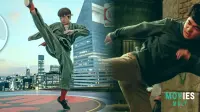The Karate Kid story has been told many times. It has seen sequels, TV shows, and reboots. Now, it is back again with Karate Kid: Legends. This new film stars Ben Wang as a young man who gets guidance from Jackie Chan and Ralph Macchio, both of whom return to their familiar roles. At its heart, the movie still tells the classic story: a kid has to train hard, learn some big life lessons, and kick a bully right in the face. It is a formula that just seems to keep working.
Jackie Chan, who plays Mr. Han, first took on this role in the 2010 movie that remade the original story. In this new film, he is the wise instructor once more. He acts as a balance to the much-loved Mr. Miyagi from the first 1984 movie. Director Jonathan Entwistle said he had a clear idea for the project. He wanted it to feel like an early Jackie Chan movie, full of exciting action. This is a smart choice because Chan is known for that kind of energy.
The film puts kung fu talent Li Fong, played by Ben Wang, into a big karate competition. Mr. Han and Daniel LaRusso, the legendary Karate Kid himself, guide him. It is interesting to see both mentors together. Jackie Chan, at 71, still handles his own stunts. He said it is easy for him to adapt as he gets older. He calls it "muscle memory." That is pretty amazing to hear from someone who has been doing this for so long. It shows his lasting skill.
Jackie Chan Reflects On His Stunt Work And The Cultural Impact Of The FranchiseThe Action Star Explains How The Karate Kid Shaped His Career And Others
Chan thinks Karate Kid: Legends is a full circle moment for Asian culture. Mr. Han is guiding the first Asian American Karate Kid, played by Ben Wang. Chan was really proud and impressed by Wang. He felt that Wang added something new to the series. Before meeting him, Chan wondered what Wang did right to get the role since there were so many auditions. But when he saw him, he understood. Wang’s hard work humility and dedication to the movie truly impressed Chan.
Pat Morita, who played Mr. Miyagi, was the only Asian American cast member in the original 1984 movie. The original film has drawn some criticism over the years for its limited representation and certain plot points. However Chan believes the Movies have helped push cultural awareness forward. He said the original Karate Kid helped people look at Asian culture differently. It was not just about kung fu or karate, which are common practices. He believes it is important for the audience to learn more about Asian culture, even if it is just a part of it. This shows a bigger purpose behind the movies, beyond just the fighting.
Chan’s career spans six decades. He has given us many memorable roles in movies like Rush Hour and Police Story. He became a familiar name in the US in the 1990s and 2000s by bringing his unique mix of kung fu and daring stunts to wide audiences. His path to stardom was not always smooth though. His 1980 Hollywood debut, The Big Brawl, did not do very well. He felt frustrated and went back to Hong Kong to make his own movies. He learned a lot about Hollywood filmmaking during that time and brought those lessons back to his own crew. He said he was just a kid back then and everything was new to him. The early struggles taught him lessons he later used in his own films.
Chan thinks the new movie captures the real spirit of what made the original so loved. He said this movie has a lot of good, real action that you can only truly feel on the big screen. He also added that it is a movie about love, friendship, and family. It is nice to hear that the core themes remain even with the added action. It seems they are trying to keep the heart of the series while giving fans what they want to see in terms of fighting.
Meeting The New Karate Kid And The Challenges Of Continuing A Beloved Story
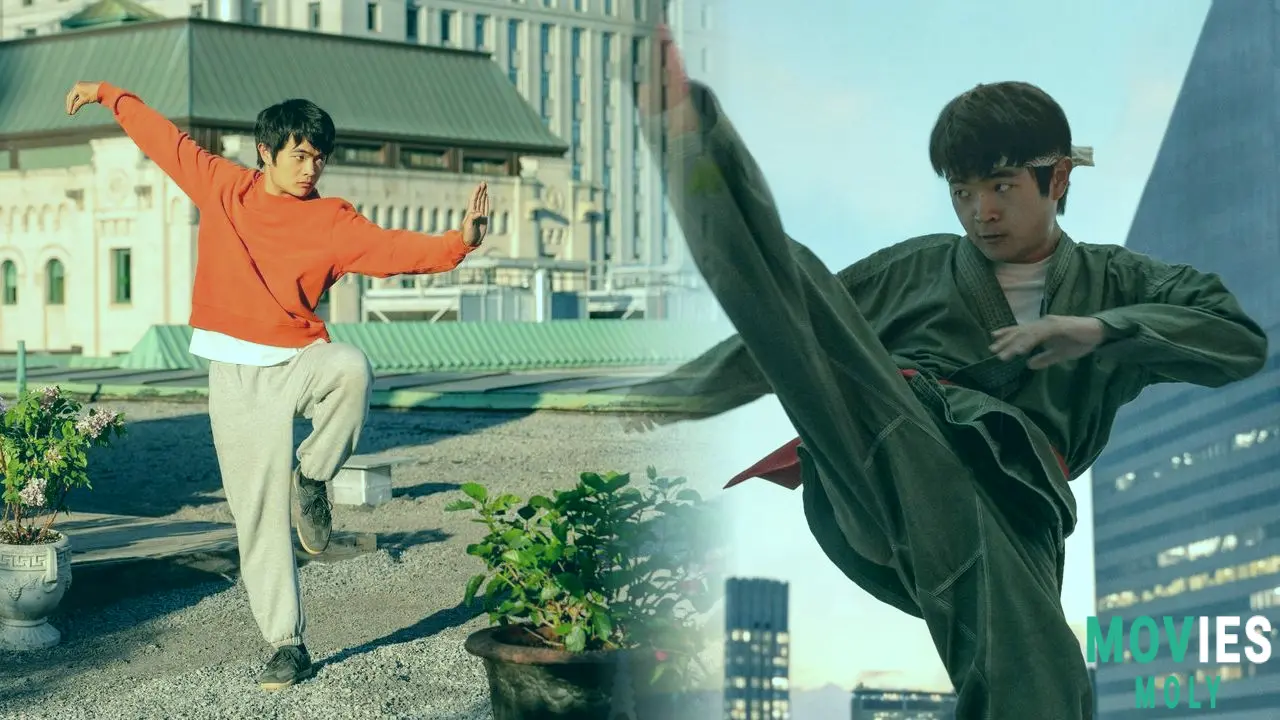
Ben Wang Shares His Journey Into The Franchise And Working With Acting Legends
Ben Wang, the new star, is an endearing 25-year-old. He shared a story about "Jackie Week" when Jackie Chan showed up on set. Their French-Canadian crew, usually cool, became like "Keystone Cops" running around excitedly. This shows the huge impact Chan has. Even at 71, Chan is still a force of nature. It is fitting that the movie is called Karate Kid: Legends, bringing together Ralph Macchio, a legend of the franchise, and Chan, a legend of cinema. Chan's character, Mr. Han, guided Jaden Smith in the 2010 film. Now, he joins Daniel LaRusso to create a two-man martial arts training team. Wang and Macchio sat down for an interview with Chan, who was wearing a beige tracksuit between them. Chan mentioned how people call him a "superstar" and a "legend." He said it means that all the years he risked his life for his work were worth something. This makes you appreciate his dedication.
It was Chan’s physical skill that made him a star. He found success in Hong Kong in the 1980s and then worldwide in the late 1990s and 2000s with movies like Rush Hour. Getting Chan in a project like Legends is a big deal. It is his first live-action American blockbuster in 15 years. Wang jokingly described Chan as "martial-arts-film Santa Claus" because he makes the whole set a "Christmas wonderland of kicking a bunch of people." This shows the positive energy Chan brings to his work.
Legends follows a familiar formula. There is a kid, Li Fong (Wang), who moves to a new city with his mother (Ming-Na Wen). He finds romance with a pizzeria employee (Sadie Stanley). He finds a rival (Aramis Knight). And he finds mentorship from Chan and later Macchio. They both fill the role of Pat Morita’s Mr. Miyagi. All the paths lead to a high-stakes karate tournament. It is a story as old as 1984, at least. Wang feels the original Karate Kid was very American. It was directed by the same person who did Rocky. But it also had an Asian American lead in Pat Morita, which brought a unique flavor. He added that these films always showed respect for Asian martial arts. Wang himself started taekwondo because of the Jackie Chan Karate Kid movie. He sees the franchise as a way to help people understand different cultures.
Macchio agreed saying that informing audiences about a different culture is always a good thing. He said martial arts is a way of life, not just fighting. It is about self-worth, discipline, and respect. For Chan, the film has a special meaning too. He felt lucky to work with Macchio. Chan said that when the original Karate Kid came out, he was young, feeling down, and wanted to stop training. He was a stuntman with no job. Then he saw Karate Kid and it gave him his confidence back. He started training again. Now, they work together. He calls it a dream come true. While Chan might be mixing up some dates, the personal meaning of the film is clear.
The Li Fong role needs a lot of physical skill. It includes flying kicks, upside-down sit-ups, and more. Wang said he even hurt himself, slicing the tip of his pinky. He held up his healed finger. But he also told a story about Jackie Chan pulling up his trouser leg to show a bruised calf after jumping off a tree. This reminds us of the true physical demands of action films. Wang learned from Chan that you can always work harder and care more. He said that however much you think you care about something, Jackie Chan cares more about making martial arts movies than that. That is some serious dedication.
Director Jonathan Entwistle's Vision For A Modern Karate Kid Story
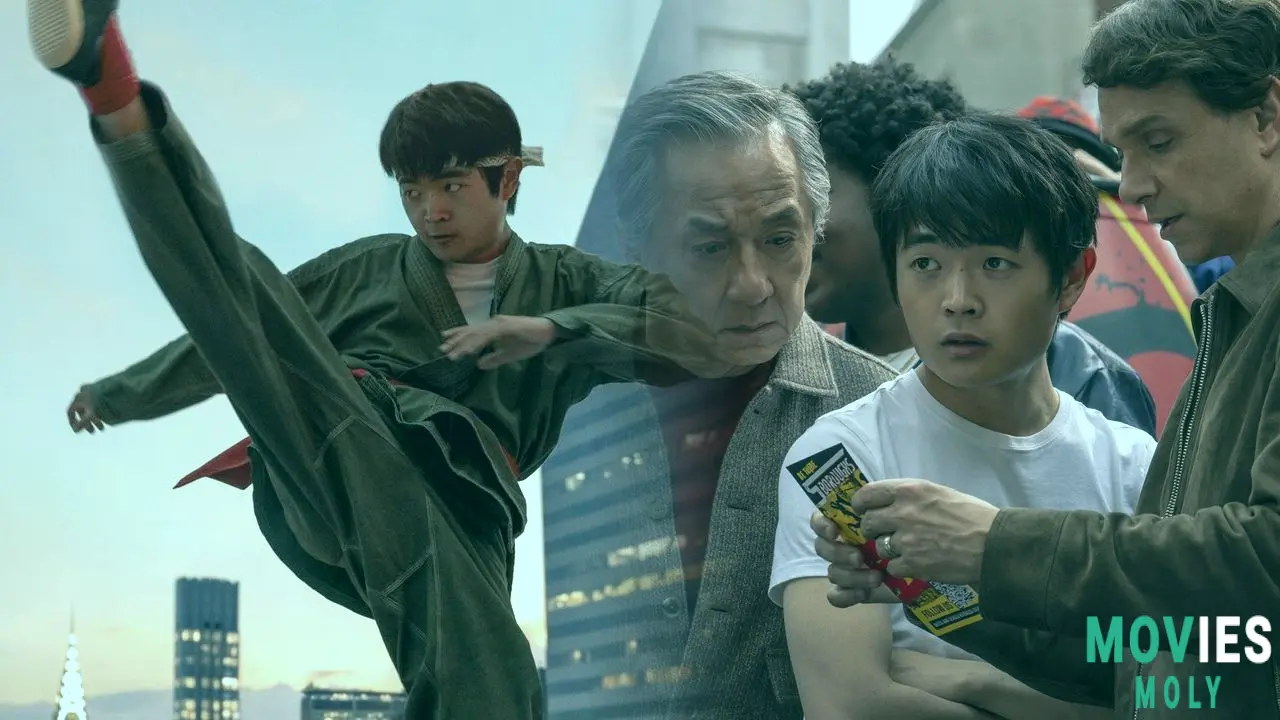
Balancing Nostalgia With New Ideas For A Fresh Yet Familiar Film
Director Jonathan Entwistle grew up watching the Karate Kid movies. He knew everyone over 30 knows "Mr. Miyagi, wax on, wax off." But turning something absorbed culturally into a successful new sequel was a challenge. Entwistle, known for shows like The End of the Fing World, had to make Karate Kid: Legends. This sixth film in the franchise is a soft reboot. It brings in new main character Li Fong and combines original star Ralph Macchio and 2010 Karate Kid star Jackie Chan. Entwistle was ready to take on the task and make a Karate Kid for a new generation.
Entwistle wanted to create a modern film without breaking what people expect from a Karate Kid movie. He wanted to have both. We could enjoy Daniel and Jackie and everything they bring while also having a new story. For Entwistle, the main point of a Karate Kid movie is guidance. He feels mentorship is a very important part of the story. Every part of Karate Kid, in all its forms, has had someone guiding another. He was excited about the idea of Jackie Chan fighting with Ralph Macchio on a rooftop in New York. He said that was awesome. He saw it as not cynical to want to see Jackie Chan doing amazing martial arts. He said, "Yes, this is what I want to see when this movie goes out."
Directing Jackie Chan was "magical" for Entwistle. He said Chan is amazing at fight coordination. He also finds humor in every little item around him. It was great to watch him work and think about where the camera was. He considers what the audience wants to see. Chan was involved in all the fight parts of the movie. He even arrived on set when they were filming an alleyway fight with Ben. He would say, "OK, no, you do this. We pull this this way, do all of this." Entwistle felt that was when they really started to "cook." He wanted the fights to feel real, fun, and big so that they felt different from recent versions of fights in the franchise.
Entwistle also said the movie squeezes in a boxing subplot. This allows Ben Wang’s character, Fong, to do a reverse Karate Kid. He trains Joshua Jackson’s character, Victor. Entwistle found it exciting to show a different type of fighting within a martial arts approach. He also said that Li is not teaching Victor a specific kick. He is teaching him to believe in himself and to pick himself up when life knocks him down. This is the heart of the training montage. It is about buying you the ability to enjoy where you end up. The final training sequence with Jackie Chan and Ralph Macchio buys you a 12-minute ending with no talking, just martial arts at sunset. This buildup makes the ending feel like a roller coaster ride.
Entwistle was also inspired by anime, especially for the tournament climax. He wanted the energy and visuals to feel heightened. He wanted the sky in the finale to look like the sky from the movie Your Name. He worked on it to make it graphically more intense in a live-action setting. This tonal approach helps younger anime fans connect with the film. He confirmed that Jaden Smith’s character, Dre Parker, still exists in this world. He is still canon but not directly linked to Li Fong’s story. It is a nice nod to the broader franchise.

